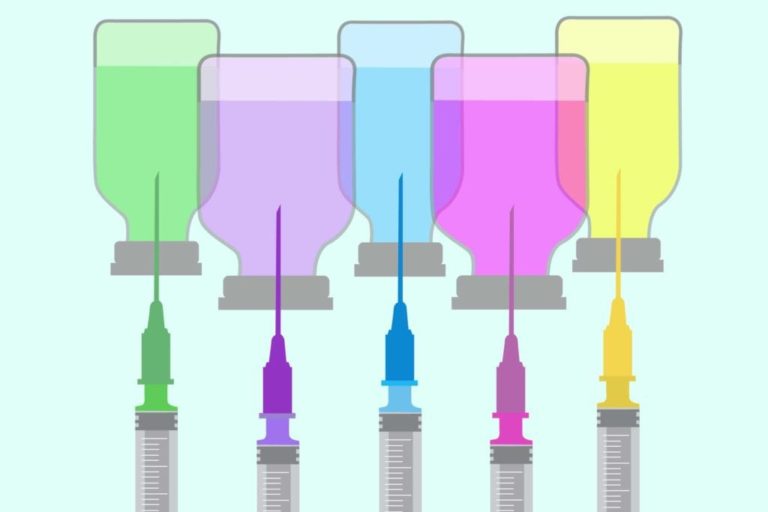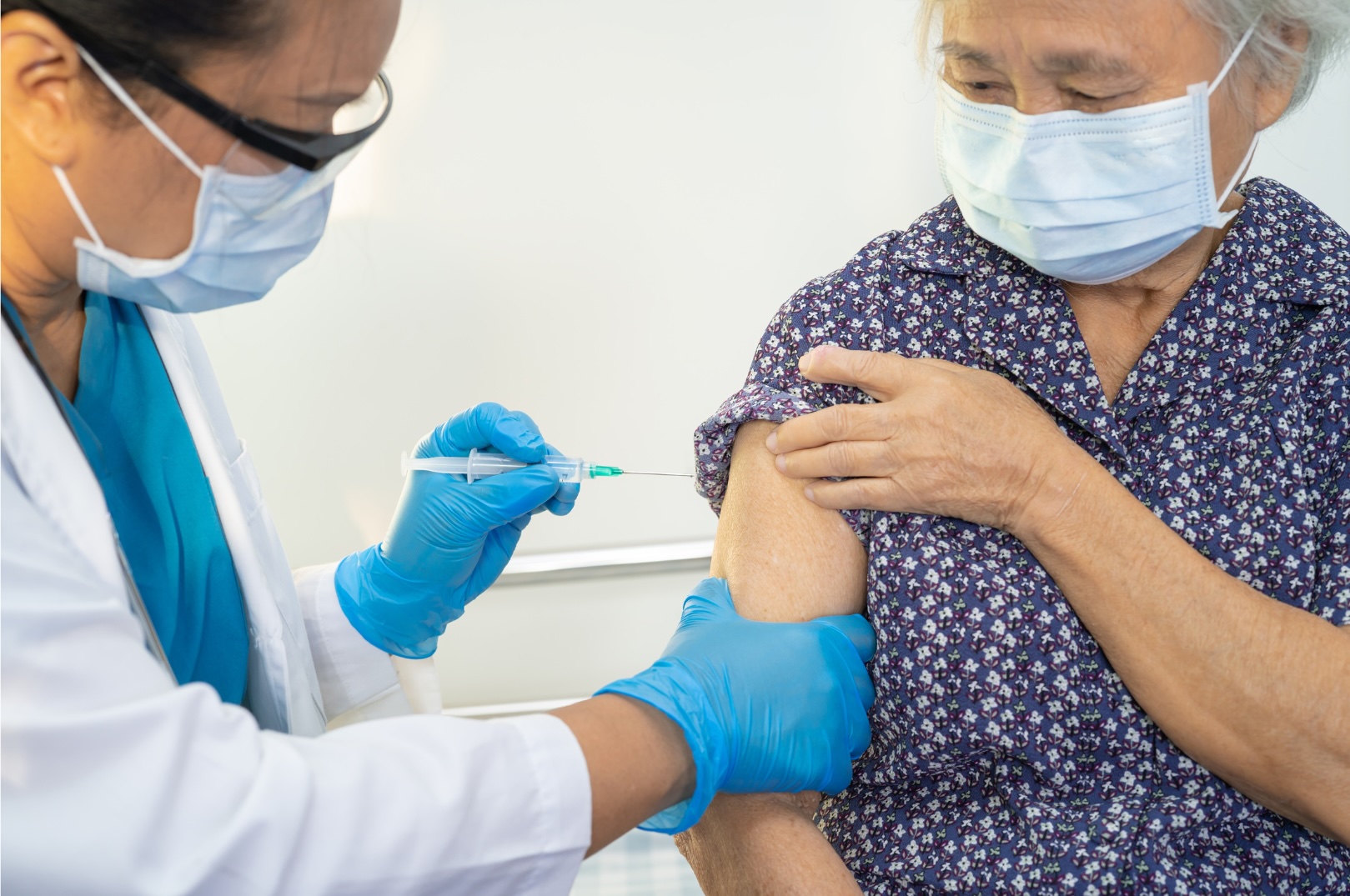Enhancing Adult Vaccine Uptake: Challenges in Shared Clinical Decision Making and Risk-Based Recommendations
Advocating for Better Vaccine Access and Education
Advocating for Better Vaccine Access and Education
Learn how vaccine policies safeguard public health, protect those with chronic illnesses, and why patient advocacy is essential for driving meaningful change.
December 6, 2024
Zoe Rothblatt

For people with chronic illnesses, vaccine policies directly impact their ability to stay protected against preventable diseases. Effective policies improve access, education, and delivery of vaccines, helping to reduce the disease burden and strengthen public health.
Here are the top considerations and talking points to support vaccine advocacy efforts, including how state laws shape vaccine access and the role of patient advocacy in driving change.
Enhancing Access in Pharmacy Settings
Pharmacists and pharmacies play an important role in helping adults access vaccine in the U.S. With 89 percent of individuals living within five miles of a pharmacy, they are one of the most accessible health care settings for vaccinations.
Most adults go to a pharmacy for their vaccination(s), according to a report published in 2023 by IQVIA Human Data Sciences and the Global Healthy Living Foundation. Researchers found that post COVID-19 pandemic, almost 90 percent of adult vaccines are given at pharmacies.
State laws play a big role in vaccine access — making it easier or harder for adults to get this vital service. While pharmacists in all 50 states and D.C. are allowed to administer vaccines, the extent of the authority varies widely. For example, some states only let pharmacists give certain vaccines or limit their services to certain age groups. Others require pharmacists to administer vaccines only in the pharmacy itself.
These restrictions can slow things down, leading to longer wait times and fewer available appointments, especially during peak vaccination seasons like flu season.
One solution is to allow pharmacy technicians to administer vaccines. Pharmacy technicians are trained medical professionals who work under pharmacists and are often responsible for finding, packaging, and labeling prescription medications. Allowing both pharmacists and pharmacy technicians to administer all CDC Advisory Committee on Immunization Practices (ACIP) recommended vaccines would ensure that more people can get vaccinated promptly.
Advocating for laws that empower pharmacy technicians to administer all CDC Advisory Committee on Immunization Practices (ACIP) is a practical step to enhance access.
Tip: When speaking to legislators, emphasize that this approach increases the number of trained personnel available, reduces wait times, and alleviates pressure on pharmacists.
Preserving Vaccine Requirements
Vaccine requirements are one of the best ways to maintain high immunization rates and protect vulnerable populations. State laws play a key role here, especially for schools, health care workers, and jobs where employees interact with the public.
These requirements can also help to ensure community-wide protection for individuals with chronic illnesses who rely on herd immunity for added safety. When more people are vaccinated, it helps shield those who are most at risk. One well-known example of vaccine requirements is for school-aged children to get certain vaccines before they can attend school. These laws ensure that children are protected from diseases like measles, mumps, and rubella, which spread easily in group settings. States with strong school requirements typically have higher vaccination rates, which help prevent outbreaks and maintain herd immunity.
In some states, personal or religious belief exemptions have led to lower vaccination rates in certain communities. To protect public health, especially for children who cannot be vaccinated due to medical reasons, advocacy efforts should focus on bills that allow for no non-medical exemptions. This helps protect public health, especially for children who cannot be vaccinated due to medical reasons.
Tip: When speaking to legislators, emphasize the science and real-life Impact, focusing on how when vaccination rates drop, we see the real-life consequences that can endanger children and at-risk groups.
Expanding Opportunities for Education
Education is a cornerstone of vaccine advocacy. When health care providers take the time to talk to their patients about the importance of vaccines, it increases awareness, dispels myths, and improves vaccine uptake.
One of the most effective opportunities for education is during routine medical appointments or at the time of hospital discharge. Doctors and nurses can play a critical role in ensuring that patients understand which vaccines are required or recommended based on their age, health conditions, and risk factors.
This guidance can make a significant difference for patients who might not realize they’re due for certain vaccines. Take shingles as an example: many adults are unaware that the CDC recommends the shingles vaccine for individuals aged 50 and older or for younger adults with weakened immune systems. Without proactive education from their doctor, a patient may unknowingly remain at risk for shingles, a painful and potentially debilitating condition.
State policies can support these education efforts by requiring health care providers to discuss vaccines as part of routine care or discharge planning. For example, laws that require vaccine discussions during annual physicals, hospital discharges, or preoperative appointments ensure that patients consistently receive vaccine information at critical touchpoint.
Tip: During your next doctor’s appointment, ask about which vaccines you might need based on your age, health conditions, or risk factors. Bring up any concerns or questions you have — this is your opportunity to get clear, accurate information and take steps to protect your health. If a vaccine is recommended, make a plan to get it during your visit or soon after.
The Role of Patient Advocacy
While effective state policies are key, they often require a push from the communities they serve. This is where patient advocates like you can play a crucial role. Speaking directly to legislators about these issues humanizes the policy discussion and demonstrates the real-world impact of laws and regulations.
Sharing stories about long waits at pharmacies, challenges with vaccine access, or the benefits of vaccine requirements can influence lawmakers to support policies that improve public health outcomes. Together, we can create a healthier and safer future for all.
Here are a few more key points to emphasize when speaking with legislators about vaccine policy:
- Protecting vulnerable populations: Vaccines are not just about individual protection; they safeguard entire communities. For individuals with chronic illnesses or weakened immune systems, vaccines are a critical layer of defense against exposure to infectious diseases.
- Preventing outbreaks: States with robust vaccine requirements experience fewer outbreaks of preventable diseases like measles. These requirements help keep diseases at bay.
- Reducing health care costs: Preventing disease through vaccination is significantly less expensive than treating outbreaks. Policies that expand access to vaccines save public health dollars by reducing hospitalizations, treatments, and long-term health complications from vaccine-preventable diseases.
Want to Get More Involved with Patient Advocacy?
The 50-State Network is the grassroots advocacy arm of CreakyJoints and the Global Healthy Living Foundation, comprised of patients with chronic illness who are trained as health care activists to proactively connect with local, state, and federal health policy stakeholders to share their perspective and influence change. If you want to effect change and make health care more affordable and accessible to patients with chronic illness, learn more here.
Informed Immunity
Informed Immunity is a podcast series dedicated to providing clear, evidence-based information on vaccines and public health. Within these episodes, we dive into essential topics like the importance of community and equity in immunization, debunking common vaccine myths, navigating the health care system, and the latest advancements in vaccine research. Our goal is to empower listeners with the knowledge they need to make informed health decisions. Listen now.
This article was made possible with support from GSK.
SUBSCRIBE TO GHLF
RELATED POST AND PAGES
_
Was this article helpful?
YesNo






